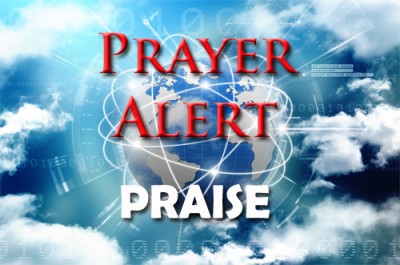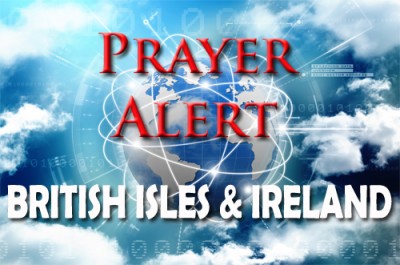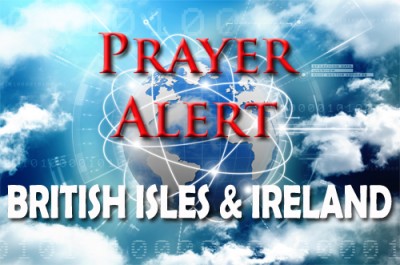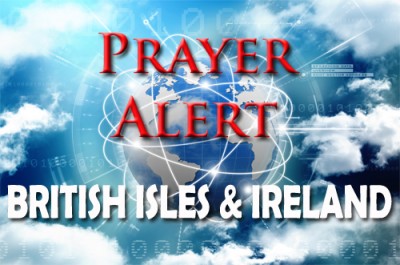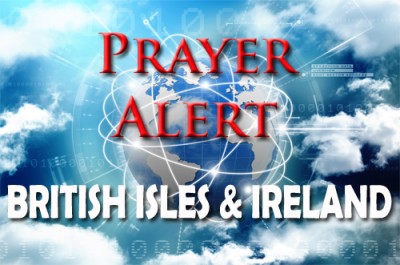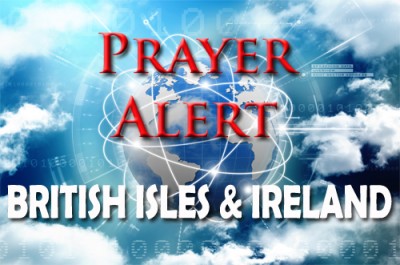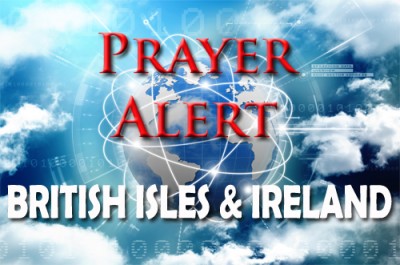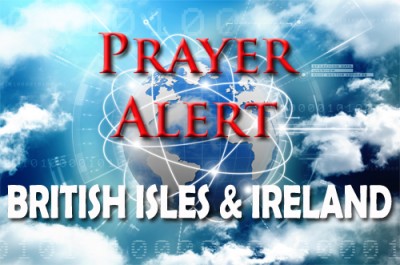India: back from the dead
21 Sep 2018‘See, as your Jesus was beaten and killed, so have we killed your pastor now. His body is in a ditch in the forest. Find him and bury him!’ Militants had tied up the Christian pastor and beaten him until he had bloody wounds all over his body. They made him crawl up a mountain, still beating him with their sticks to force him forwards. When Tilak took his last breath, they sent for the village doctor to confirm his death and then threw his body in a ditch. There was no way he could have survived. The Christians from Tilak’s village found his body and brought it home. Laying him in a hut and paying their last respects they did not expect him to start to move and open his eyes. Tilak was alive! Some of his attackers were present when he came back to life. They must have been the most shocked of all.
Brexit: farming and the land
21 Sep 2018Farmers are coming to terms with low crop and forage yields resulting from a long cold winter and hot dry summer. They are also worried about Brexit; many feel that farming is a long way down the list of politicians’ priorities. The main concern is the direct payments to farmers made under the EU’s Common Agricultural Policy (an essential part of their income as long as food is cheap). They fear new trade agreements will allow imports of cheaper food from countries that lack our high standards of animal welfare, soil protection, minimum wages, and quality goods (all of which add value and cost). Meanwhile, over the past months the National Farmers Union has been preparing reports on international trade, domestic agricultural policies, competent/flexible workforce, managing price volatility, and improving productivity. The EU withdrawal bill is now working its way through Parliament; the wheels are in motion to enact Brexit. The first agriculture bill for a generation is also on its way and must be seized as a golden opportunity to build a system that works for British farmers. See
The CofE in Parliament
21 Sep 2018On 13 September 2018 the House of Lords debated a motion from Lord Popat, ‘to ask Her Majesty’s Government what actions they are taking to reassure the Jewish community over the impact of anti-Semitism in the United Kingdom.’ David Urquhart, the Bishop of Birmingham, said, ‘There is a need for constant vigilance to ensure that anti-Semitism plays no part in the life of our country’. A further report on the theology of Christian-Jewish relations is in preparation, led by the Bishop of Lichfield.
Christian Unions in schools
21 Sep 2018Christian Unions (CUs) are groups within schools for young people to explore Christianity and develop their faith, usually meeting during a lunchtime. They are typically student-led, sometimes with teachers present, and every group is different. We can pray that this year’s CUs are powerfully outward-looking to their non-Christian friends. May many Youth Alphas be used in the CU meetings. Being a young person who wants to follow Jesus in 2018 is not easy. It is difficult just to survive in their faith through the years of change in their teens. Reaching friends for Jesus takes a serious amount of courage and character. Pray for more parents, church leaders, and youth workers to stand with these teenagers in a show of support and encouragement as they work towards transformation in their school.
Post-Brexit: Britain and China free trade
21 Sep 2018Britain has given a strong message to Chinese companies that it is fully open for business as it prepares to leave the EU next year, and that China is one of the countries with which Britain would like to sign a post-Brexit free trade deal. Following talks between British trade minister Liam Fox and China’s commerce ministry, they have agreed to look at the possibility of reaching a ‘top notch’ free trade agreement after Brexit. They met at the British Ambassador’s residence in Beijing and signed memorandums of understanding between British and Chinese firms and institutions. China also said that it hoped Britain would use a major import fair in November in Shanghai, which President Xi is overseeing, to expand its exports to China. Dr Fox and Prince Andrew are expected to be leading Britain’s delegation.
Scotland: St Andrew’s Day
21 Sep 2018St Andrew’s Day is 30 November and it will also be a day of prayer for Scotland, with many churches in different parts of the country hosting a variety of prayer events. May God bless Scotland and help every individual to show gratitude for what has been good in the past, goodwill in the present, and hope with determination for the days ahead. May Scotland follow Andrew’s footsteps, just as he followed his Lord, Jesus Christ.
Ali fades, Bronagh approaches
21 Sep 2018At the time of writing, a huge clean-up operation is continuing after Storm Ali battered parts of the UK with winds of up to 100mph. Two people died, thousands of homes were without power, and lorries overturned due to the severe winds. Rail services were disrupted, and on 20 September in some places the winds were still too strong for engineers to repair downed power lines. Some 55,000 homes and businesses, largely in southwest Ireland, suffered a loss of power due to the winds. Meanwhile Storm Bronagh has been officially named; she is due to reach Devon and Cornwall on 20 September, and expected to deliver heavy rain, lightning, hail and high waves around the coasts. The Met Office has warned of damage to buildings, falling trees, and danger to life. See
Theresa May in Salzburg
21 Sep 2018The Prime Minister used a dinner in Salzburg to make the case for her Chequers strategy for future relations, and told the EU they must ‘evolve’ their stance on the Irish border. Before the event, she said Chequers was the only credible plan to allay concerns on the Irish border and trade disruption. However, the EU chief told Theresa May her Brexit plan needs to be reworked. We can pray for God to pour His wise insights into all European and British leaders as they continue to create workable plans for the future. May God powerfully bring about His purposes for the nations through what is agreed and done at this time. The media are saying that leaders do not want to disclose their thoughts and plans fully at this stage for fear of their being rejected, and caution will result in decisions not being made until the very last minute. See also
